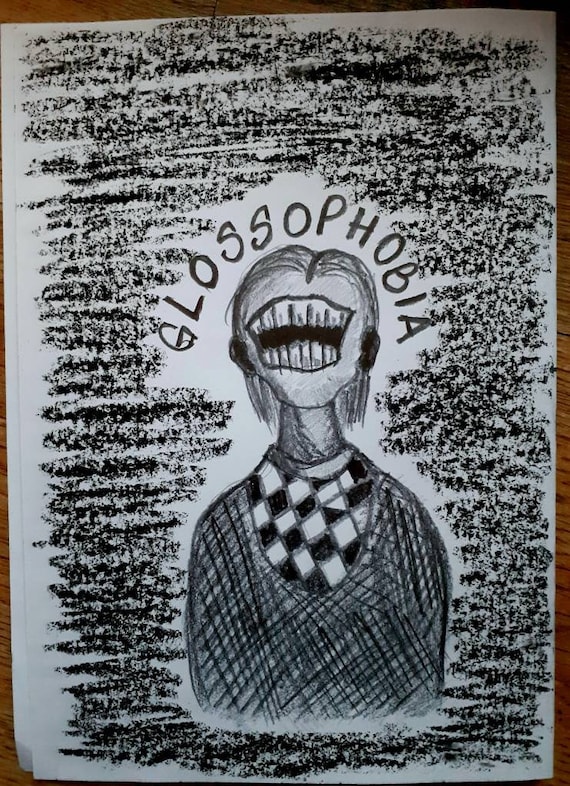Is Glossophobia a Mental Illness?
Glossophobia is classified as a social anxiety disorder, according to the Diagnostic and Statistical Manual of Mental Disorders (DSM-5). It is characterized by an intense fear of public speaking.
Individuals with glossophobia may experience excessive nervousness, avoiding speaking in public situations, and may even have physical symptoms such as rapid heartbeat and sweating. This fear can significantly impact their personal and professional lives. Overcoming glossophobia often involves therapy, exposure techniques, and practice in public speaking settings.

Credit: www.freepik.com
Understanding Glossophobia
Glossophobia, also known as the fear of public speaking, is a social anxiety disorder. People with glossophobia experience intense fears that are disproportionate to the situation. It is classified as a mental illness because it goes beyond occasional worrying or nervousness.
Glossophobia can have a significant impact on individuals, affecting both their personal and professional lives. Prevalence studies show that glossophobia is quite common, with estimates ranging from 75 to 85 percent of individuals experiencing some level of anxiety when speaking in public.
Symptoms of glossophobia can manifest as physical, emotional, and cognitive reactions such as rapid heartbeat, sweating, trembling, fear of judgement, and difficulty organizing thoughts. Understanding the definition, prevalence, and impact of glossophobia is crucial in helping individuals overcome this fear and seek appropriate treatment.
Glossophobia Vs. Social Anxiety Disorder
Glossophobia, also known as the fear of public speaking, is a specific phobia classified under social anxiety disorder. It is characterized by an intense fear of speaking or presenting in front of an audience. Social anxiety disorder, on the other hand, is a broader condition that encompasses a wide range of fears and anxieties related to social situations.
Glossophobia can be seen as a subset of social anxiety disorder, specifically focusing on the fear of speaking in public. The diagnostic criteria for social anxiety disorder include excessive fear or anxiety in social situations, avoidance of social situations, and the presence of symptoms causing significant distress or impairment in functioning.
It’s important to note that while glossophobia may share similarities with social anxiety disorder, not everyone with a fear of public speaking meets the criteria for a clinical diagnosis.
Treatment And Management Of Glossophobia
Glossophobia, or the fear of public speaking, is classified as a social anxiety disorder. It is not considered a mental illness. Glossophobia is characterized by intense fear and anxiety when speaking in front of others. Cognitive-behavioral therapy (CBT) is a common treatment option for glossophobia.
CBT helps individuals identify and challenge negative thoughts and beliefs related to public speaking. Exposure therapy is another effective treatment for glossophobia. It involves gradually exposing individuals to speaking situations, helping them become more comfortable over time. In some cases, medications may be prescribed to manage symptoms of glossophobia, such as antidepressants or beta-blockers.
However, it should be noted that medication alone is not typically used as a first-line treatment for this specific phobia.
Frequently Asked Questions For Is Glossophobia A Mental Illness?
Is Glossophobia A Social Anxiety Disorder?
Glossophobia is classified as a social anxiety disorder, causing strong fears that are out of proportion.
Is Fear Of Public Speaking A Psychological Illness?
Public speaking anxiety, or fear of public speaking, is classified as a social anxiety disorder.
Is Fear Of Public Speaking A Type Of Panic Disorder?
Fear of public speaking, also known as glossophobia, is categorized as a social anxiety disorder, not a panic disorder.
Are Phobias Considered Mental Illness?
Phobias, including glossophobia (fear of public speaking), are considered mental illnesses classified under social anxiety disorder.
Conclusion
Ultimately, glossophobia, the fear of public speaking, is classified as a social anxiety disorder. It is not considered a mental illness in the traditional sense, but rather a specific phobia that can cause significant distress and impact a person’s daily life.
Those with glossophobia may experience intense anxiety, physical symptoms such as rapid heartbeat and sweating, and avoidance behavior when faced with speaking in public. However, with the right techniques and treatment, individuals can overcome glossophobia and regain control over their fear.
Techniques such as cognitive-behavioral therapy, exposure therapy, and relaxation techniques have shown promising results in helping individuals manage and conquer their fear of public speaking. It is important to remember that everyone’s experience with glossophobia may be different, and seeking professional help from a mental health expert can provide tailored strategies for overcoming this fear.
With patience, support, and practice, individuals can successfully face their fear of public speaking and effectively communicate their ideas to others.

